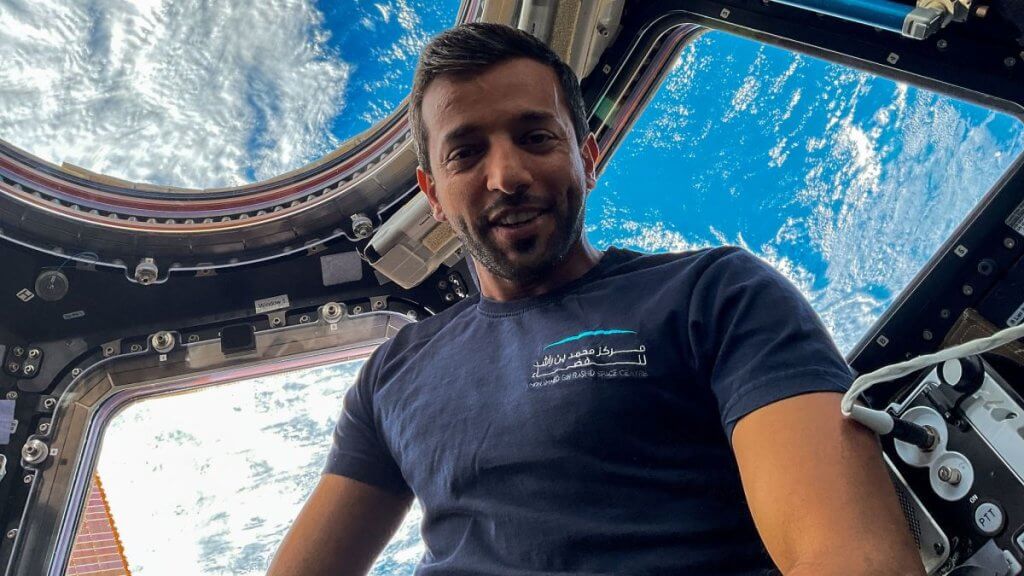The first Emirati astronaut is readying to celebrate Eid, with his space mascot.
The end of Ramadan is usually marked with local sightings of the crescent moon. From the International Space Station, astronaut Sultan Al Neyadi confirmed on Twitter (opens in new tab) he will mark the end of Ramadan today (April 21).
“Today, I’ll be celebrating Eid with my trusty companion Suhail,” Al Neyadi wrote, referring to the cartoon-character astronaut mascot of the mission. (Suhail is the Arabic name for the star Canopus. That star is important in the Middle East as it marks the end of summer and the cooler season, the astronaut has said.)
Related: UAE astronaut mascot ‘Suhail’ flies again as SpaceX Crew-6 zero-g indicator
Today, I’ll be celebrating Eid with my trusty companion Suhail. On this blessed occasion I send my warmest greetings to my family, friends, and everyone back on Earth. 🌍 May this special occasion bring you peace, happiness, and prosperity. Eid Mubarak! 🌙April 21, 2023
Al Neyadi’s announcement follows from the United Arab Emirates Sighting Committee spotting the moon and marking the beginning of Eid-Al-Fatr in the emirates, according to Gulf News (opens in new tab).
“On this blessed occasion I send my warmest greetings to my family, friends, and everyone back on Earth. May this special occasion bring you peace, happiness, and prosperity. Eid Mubarak,” Al Neyadi added in his tweet.
Ramadan, the ninth month of the Islamic calendar, was forecasted to last roughly from March 22 to April 22 depending on local sightings of the crescent moon. Al Neyadi spent all of Ramadan in space, as he arrived March 2 after launching into orbit aboard SpaceX‘s Falcon 9 rocket in a Crew Dragon spacecraft.
Related: SpaceX Crew-6 astronaut mission: Live updates
(opens in new tab)
While most adult Muslims are required to fast from dawn to sunset as one of the five Pillars of Islam, Al Neyadi previously told reporters he may not participate for operational reasons.
“We’re actually allowed to eat sufficient food and to prevent any escalation of lack of food or nutrition or hydration,” Al Neyadi said of Muslim travelers during a pre-flight press conference on Jan. 25. His concerns also included avoiding activities “that can jeopardize the mission or maybe put the crewmember in a risk.”
The first astronaut to mark Ramadan in space was Prince Sultan bin Salman Al-Saud of Saudi Arabia, who launched towards the end of the holy month on June 17, 1985 during the weeklong space shuttle mission STS-51G.
Al Neyadi, the first long-duration astronaut from the Emirates, is performing 19 dedicated experiments and is scheduled to take the first-ever spacewalk for that country on April 28.
Elizabeth Howell is the co-author of “Why Am I Taller (opens in new tab)?” (ECW Press, 2022; with Canadian astronaut Dave Williams), a book about space medicine. Follow her on Twitter @howellspace (opens in new tab). Follow us on Twitter @Spacedotcom (opens in new tab) or Facebook (opens in new tab).

